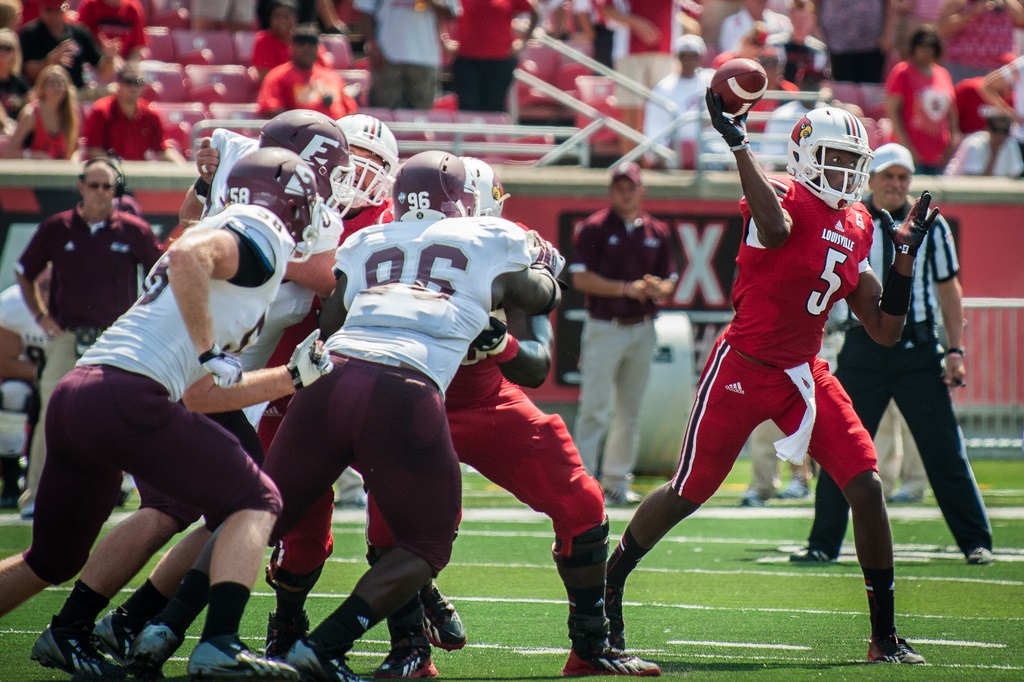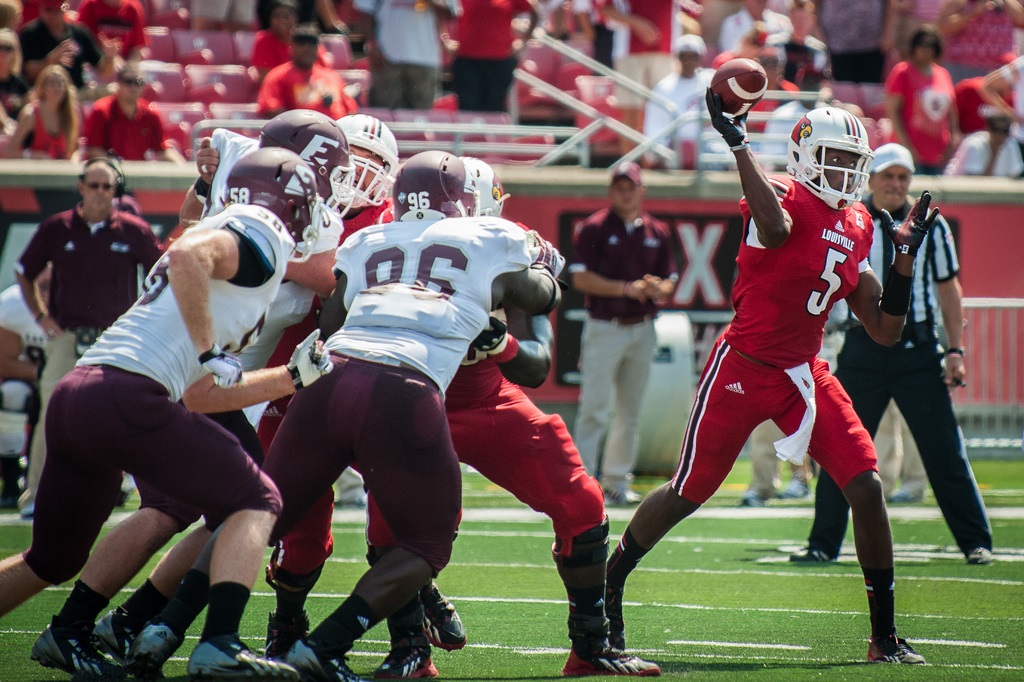
An NFL source confirmed to me that Teddy Bridgewater has scored exceptionally well on a league-used personality assessment.
I know how some bloggers have develop some disdain for the anonymous source when it comes to football news. If you’re one of them, this isn’t the post you want to read. If you don’t care, tonight I’ve been given the green light to share basics about Teddy Bridgewater’s personality assessment that at least two-thirds of the league uses for rookie prospects.
I know the scores, but I have been cautioned not to share the exact numbers. What the source has confirmed is that Bridgewater scored exceptionally well on his personality assessment-very close to the highest possible score. Bridgewater scored high in these categories:
- Focus
- Interpersonal skills
- Dedication
- Self Efficacy
- Affective Commitment
This information–if accurate–calls into question the points we’ve been hearing in the media since the combine that Bridgewater is dull and lacks leadership skills. These results support what at least many have seen that opposes the statements to the media that Bridgewater doesn’t have “It”. It also pokes holes in the statements from anonymous executives through major media that Bridgewater can’t “be the face of the franchise” or lacks “CEO” qualities.
Based on what I’ve seen from Bridgewater in Jon Gruden’s QB Camp, Bridgewater was straight-forward, accountable, and engaging. Is he the classic personality type that charmed Jon Gruden like Aaron Murray? Not at all.
Neither was Joe Montana, Joe Flacco, or even Johnny Unitas. It’s been said that Mike Nolan and the 49ers preferred Alex Smith’s grounded personality to Aaron Rodgers, who came across as arrogant.
Where the Wonderlic assesses book smarts in a timed environment, this test–according to my source–uses fast-paced, jarring questions that can often be embarrassing and pointed in nature. Much of the NFL is apparently sold on this interview-style test’s ability to assess leadership, emotions under pressure, how a player works with others, and behavior on and off the field.
Is it a good test? I have no idea. I’m sure folks with some expertise could find flaws with it just like the Wonderlic.
Does this assessment prove that the NFL is exhibiting some degree of bias? It’s a good indicator that at the very least, Bridgewater doesn’t fit the tried-and-true mold that the NFL prefers when it risks high draft picks on quarterbacks: big arm, big frame, and/or great mobility.
When it comes to precision passers with smarts but arms, athleticism, and frames that are “good enough,” but top-drawer, the NFL seems to balk at the idea of using a top-15 pick. On the other hand, they’ll err this high with good athletes possessing lesser football skills and football intelligence.
As my buddy Ryan Riddle says, “It means that teams have to determine if Bridgewater’s intelligence for the game is that much better than the norm and that’s a very hard thing to evaluate.” Drew Brees is mobile, but not dynamically athletic and his arm strength was lacking for teams to feel he was a “can’t-miss” guy. However, San Diego GM John Butler was confident that he stole Brees at the top of the second round.
If me, Daniel Jeremiah, Kurt Warner, Josh Norris, Doug Farrar and the rest of Draft Twitter are correct, Bridgewater is going to be the best value among the quarterbacks in this class.
For analysis of skill players in this year’s draft class, download the 2014 Rookie Scouting Portfolio. Better yet, if you’re a fantasy owner the 56-page Post-Draft Add-on comes with the 2012 – 2014 RSPs at no additional charge and available for download within a week after the NFL Draft. Best, yet, 10 percent of every sale is donated to Darkness to Light to combat sexual abuse. You can purchase past editions of the Rookie Scouting Portfolio for just $9.95 apiece.






